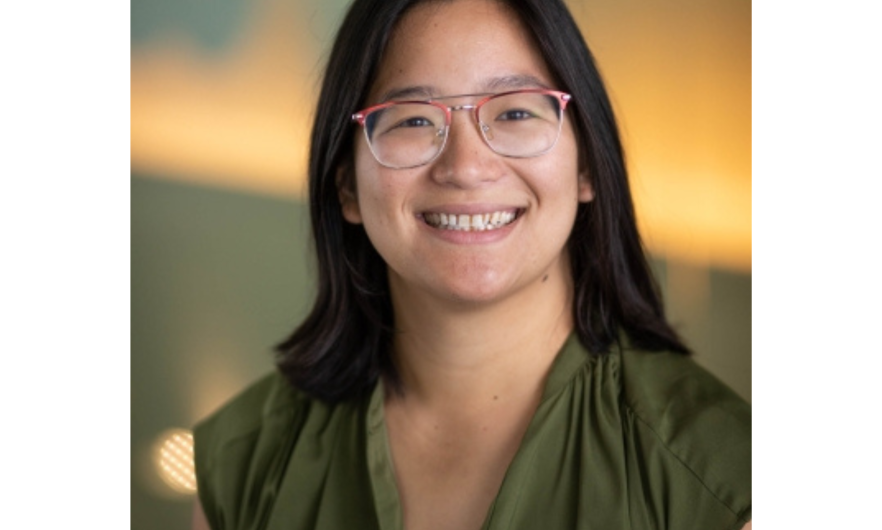Faculty Spotlight: Karen Shen, PhD
Karen Shen, PhD is an assistant professor in the Health Policy and Management department at the Bloomberg School of Public Health (BSPH).

Responses were edited for clarity and conciseness.
What is your research focus and larger role in the Center for Mental Health and Addiction Policy (CMAP)?
I’m a health economist by training and interested in applied economics research that informs policy makers. Most of my work has been focused on financing insurance, payment policy, and labor market considerations. Some of my work is very related to mental health and substance use, especially access to opioid use disorder treatment for people with commercial insurance and Medicaid. I’ve also done work about the gaps in Medicare insurance coverage around long-term care and how that spills over onto caregivers and other societal impacts. I’m on the leadership team of CMAP.
You did your bachelor’s in math and science at Stanford and your PhD in economics at Harvard. How did you transition from there to specifically health economics at Hopkins?
I decided to focus on health economics in the third or fourth year of my PhD. I didn’t come into my program knowing that I would focus on health, but I knew I wanted to do applied policy work. I was very interested in the low-wage labor market. While researching that, I realized that a lot of the growing parts of that labor force now work in healthcare. That was my transition point from labor economics into health. I stayed interested because I feel that the opportunities for direct policy impact are particularly ripe in health economics research. When I graduated from my PhD, I knew I wanted to be part of a more interdisciplinary academic environment, so I made the decision to switch to public health.
What’s one major insight or finding that you’ve come across during your research throughout the years?
I wrote my dissertation about Medicare and how it doesn’t cover long-term care. If someone needs long-term care, the only way to qualify for it is through Medicaid, which requires someone to be low-income. When people think about the budget impact of something like passing long-term care coverage in Medicare, they’re very intimidated by the sheer dollar cost of doing that. The research I did was exploring how something like covering long-term care for people spills over into other segments of the economy. In this case, I looked at how covering health insurance long-term for someone’s parent can free them up from being an at-home caretaker, which happens to disproportionately affect women. Allowing people to enter the workforce boosts government income through paying income taxes. Although it looks like a massive cost upfront, covering long-term care is actually less daunting when you factor in how much we’re secretly paying for not covering it in the status quo. These are the kind of economic insights I’m excited to bring to the table.
I also have an ongoing mental health project investigating how people with opioid use disorder who are on Medicaid are more likely to receive evidence-based medication compared to people with commercial insurance, which is quite counterintuitive. Although we normally think of Medicaid as “lower quality” insurance, there’s potentially some excellence to what Medicaid can do for its consumers.
On that note, what’s a current project you’re working on that you’re excited about?
I’m really interested in the affordability of mental healthcare. One aspect of this affordability is the lack of insurance acceptance among psychiatrists. It’s been difficult to get good data on this topic, which we call the cash-pay market for psychiatric care. We have survey estimates, but sample sizes are small and geographic and demographic variation is limited. We’ve been trying to develop a way to measure how big the cash-pay market for psychiatric care truly is and consider reasons why psychiatrists don’t take insurance as frequently as other specialties.
How do you hope your research will impact policy around insurance and providers?
I think Medicare and Medicaid policy makers are very interested in improving access. The question is, where is the marginal dollar going to be the most effective? The commercial market, in contrast, is a bit more like the Wild West. Even just being able to document what’s going on and how people are responding to their plans is potentially useful for informing regulation and standards for insurance.
What’s some advice you’d give to yourself as a student?
My one piece of advice would be to trust yourself more than you know. For graduate students especially, you tend to have multiple advisors, colleagues, friends, and people around you who make different suggestions and have strong opinions. It can be hard to follow everyone’s advice, and you can get a little bit lost. My advice would be to trust yourself to figure it out on your own terms. Avoid self-doubt but stay humble and open to new experiences. If you approach others with that energy and you approach your own work with that energy, everyone appreciates it and wants to help out.
What do you do in your free time?
I like to be outside a lot. I don’t actually like to hike that far, but I like to camp and read outdoors.
What’s your favorite place in Baltimore?
My favorite place is the Corner Juice Bar in Canton. They make delicious juices, and it is family owned. When it’s really hot outside, they’ll cut you fresh fruit while you wait for your juice.
Do you have any book recommendations?
I loved How to Do Nothing by Jenny O’Dell. It’s a reflection on being more observant and focused more on maintaining and caring something over prioritizing growth and new experience. I also love Chilean Poet by Alejandro Zambra. He writes very beautifully.
